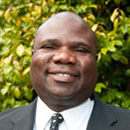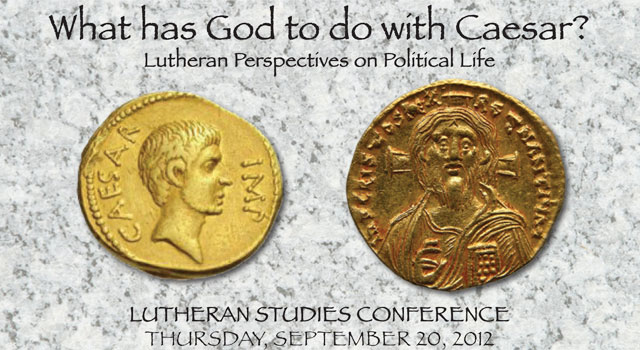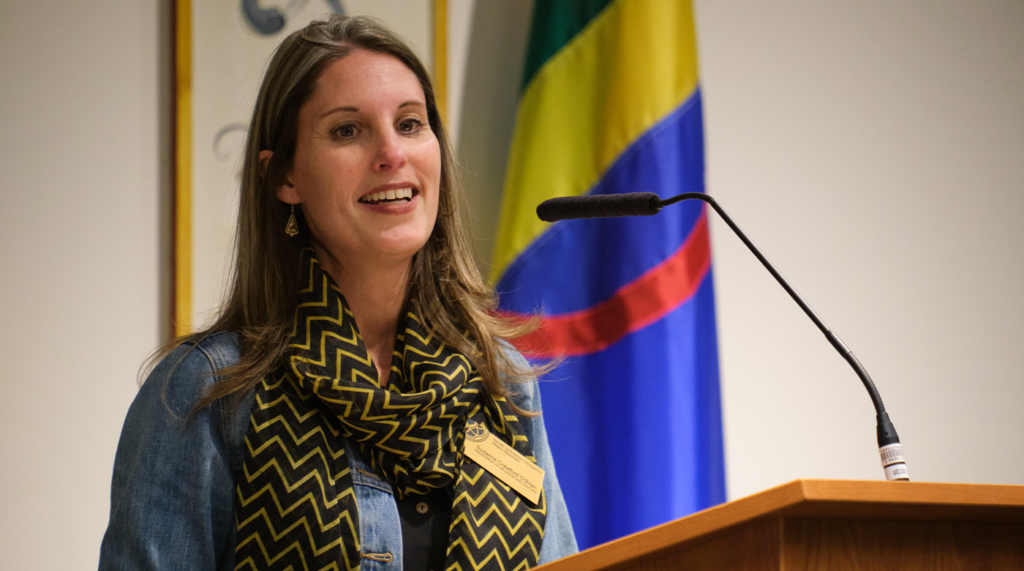Page 36 • (2,795 results in 0.019 seconds)
-

Professor Emeritus | Innovation Studies | Writer.
Robert Marshall Wells Professor Emeritus Website: https://www.robertmarshallwells.com Professional Biography Additional Titles/Roles Term of Service: 2003-2023 Education M.B.A., Foster School of Business, University of Washington Seattle, 2021 Certificate in Documentary Arts, Emphasis in documentary film, Duke University, 2013 Ph.D., American Studies, University of Maryland-College Park, 2005 M.A., Liberal Studies –with emphases in Social and Public Policy, Georgetown University, Washington
-

The Lutheran Studies Conference on Political Life examines: “What does God have to do with Caesar?” Lutheran Studies conference examines the Lutheran perspective on political life This year’s Lutheran Studies Conference on Political Life is inspired by the enduring question: “What does God have to…
speaker of the Lutheran Studies Conference on Political Life. Rasmussen is the Reinhold Niebuhr Professor Emeritus of Social Ethics from Union Theological Seminary in New York. The conference is free and open to the public – registration is requested. The keynote is in honor of the PLU’s new president Thomas W. Krise and part of the month-long inauguration celebration. This election year is marked by a still shaky economy, highly polarized political sentiments, and seemingly intractable positions on
-

Lutheran Studies Conference 2013 Breaking rules, honoring the ordinary, opening up God: Lutheran perspectives on Jesus of Nazareth The Lutheran Studies Conference will take place at Pacific Lutheran University on Sept. 26. All presentations – which will begin at 2 p.m. – will take place…
Lutheran Studies website. This year’s conference will be looking at differing perspectives on Jesus of Nazareth. This year, the keynote speaker Gail Ramshaw, Professor of Religion Emerita, La Salle University, Philadelphia. She will talk on Jesus as Champion, Sacrifice, Lover, and Tree of Life: The Christian meeting of history and metaphor. Her talk will begin at 7 pm. Christians have always sought for the Jesus of history. In our time, both biblical critical studies and popular literalism ask the
-

Associate Professor of Education | International Honors | byrnesrs@plu.edu | 253-535-7286 | Ron was a high school social studies teacher in Los Angeles and Ethiopia before completing his Ph.D.
Ron Byrnes Associate Professor of Education Phone: 253-535-7286 Email: byrnesrs@plu.edu Office Location:Hauge Administration Building Professional Biography Education Ph.D., University of Denver, 1993 M.Ed., University of California, Los Angeles, 1985 B.A., University of California, Los Angeles, 1984 Areas of Emphasis or Expertise High School Education Reform Cultural Globalization Social Studies Curriculum Development Biography Ron was a high school social studies teacher in Los Angeles and
Area of Emphasis/Expertise -
The Diversity, Justice, and Sustainability (DJS) community seeks to create a safe, supportive, and diverse environment that challenges students to explore social justice issues and begin the work
community that feels like a second family.”Maddie (Resident of DJS Community - First in the Family Wing) “It is really inspiring to see others with similar struggles persevere despite the difficulties we have as the first in our family to go to college. We have a great community of shared support.”Rebecca (Resident of the DJS Community - Environmental and Social Justice) “I love living on the Environmental and Social Justice Floor of Ordal because I’m inspired to make a difference. I’m honored to hear
-
The Olympic Games, Social Activism and Responsibility: How Sport Can Affect Change in the World Keynote Speaker: Joey Cheek Olympic Champion, Darfur Activist and Humanitarian Gold medal-winning
Keynote Speakers“The Olympic Games, Social Activism and Responsibility: How Sport Can Affect Change in the World” Keynote Speaker: Joey Cheek Olympic Champion, Darfur Activist and Humanitarian Gold medal-winning Olympic speed skater, Joey Cheek, co-founder of an international coalition of athletes committed to raising awareness about the crisis in Darfur, Sudan, will be the keynote speaker in the March 4 sessions in Tacoma. After winning gold in the 500 meter race and silver in the 1000 meter
-
Jen Soriano (she~they) is a Filipinx writer and movement builder who has long worked at the intersection of grassroots organizing, narrative strategy, and art-driven social change.
Jen Soriano Jen SorianoJen Soriano (she~they) is a Filipinx writer and movement builder who has long worked at the intersection of grassroots organizing, narrative strategy, and art-driven social change. Jen has won the International Literary Award for Creative Nonfiction, the Fugue Prose Prize, and fellowships from Hugo House, Vermont Studio Center, Artist Trust, and the Jack Jones Literary Arts Retreat. Jen is also an independent scholar and performer, author of the chapbook “Making the
-
Questions and issues relevant to popular culture and national discourse are frequently and intentionally engaged by PLU’s Philosophy Department.
Gibbs (Vice-President for Marketing and Communications). The event was organized to discuss the moral issues surrounding selfies, particularly in light of the recent controversy in which a young woman took a selfie at Auschwitz. The panel discussed selfie taking by politicians (such as President Obama at Nelson Mandela’s funeral) and other public figures, as well as how selfies taken by private individuals raise important questions about contemporary aesthetics, the ethics of our public expressions
-

Students of Color, Queer Students, & First in Family Students The Spirit of Diversity Awards is excited to recognize ALL graduating seniors who identify as Students of Color, Queer Students,
VanDenburg Rick Eastman Award: Karen McConnell Alumni Award: Theo Hofrenning 2022Wild Hope in Social Justice Monya-Dawn Wilson Faculty + Staff: Ardys Curtis Silong Chhun Karmen Taylor-Brown Miho Takekawa Neal Yakelis Emerging Leaders: Gabriel Murray Aaliyah Figueroa PJ Morales Rick Eastman Award: Lace Smith Alumni Award: Ashley Hill 2021Wild Hope in Social Justice Joey Grabowski Faculty + Staff: Austin Beiermann Dr. Christian Gerzso Dr. Ami Shah Simone Smith Emerging Leaders: Adalid Martinez Andres
-

At PLU, we’re building up the next generation of Lutes — ones who will be called to lead us into an uncertain future. On Bjug Day you joined together in ensuring students are fully equipped to answer that call. Despite navigating a global pandemic, we…
a lot of creative conversations this year, thinking about how programs can join together to offer more integrated curricula, where we can collaborate on senior capstone projects, and how we can make it more possible for students to double-major. Many of our degrees complement work that students are doing elsewhere, and we want to do what we can to make that holistic, integrative learning a possibility. How has the pandemic and social unrest impacted our academic programs? The most immediate
Do you have any feedback for us? If so, feel free to use our Feedback Form.


